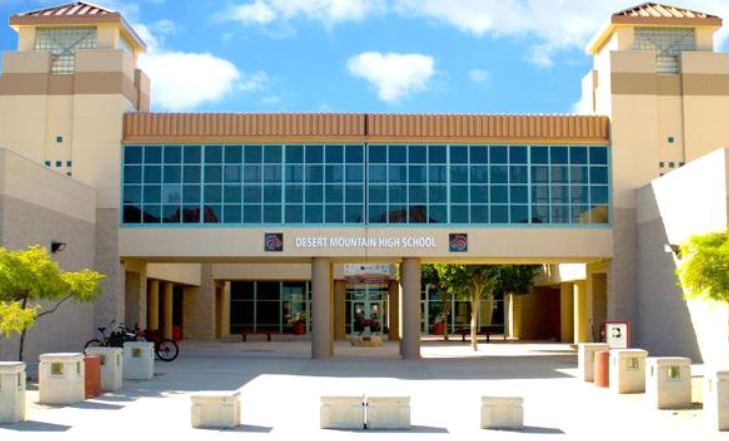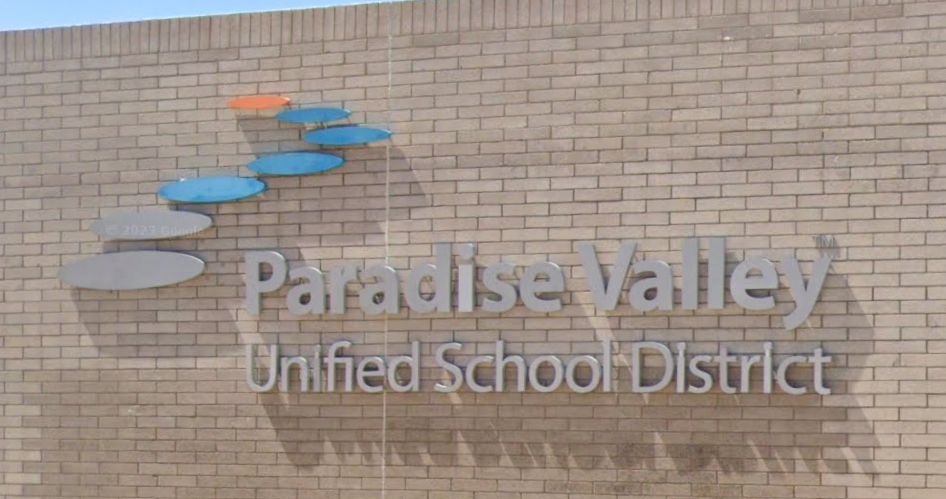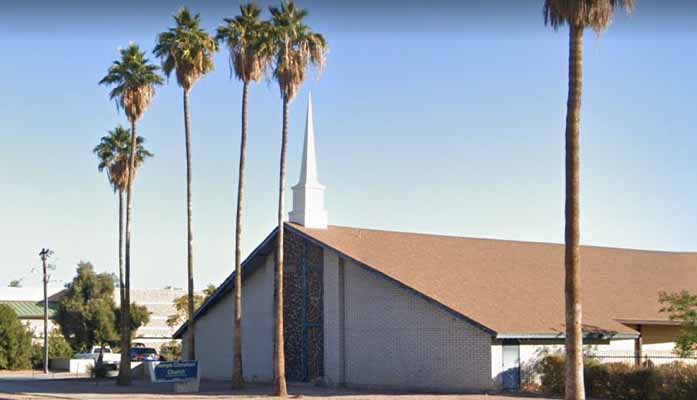
by Corinne Murdock | Nov 12, 2023 | Education, News
By Corinne Murdock |
Center for American Institutions (CAI), an interdisciplinary research project through Arizona State University (ASU), declared in a new report that higher education’s American history classes focus mostly on social justice revisionism that conclude with a depiction of America as a nation in decline.
In their research, published recently as the first “State of Health” commission report, CAI reviewed 75 introductory history syllabi from dozens of the top 150 national universities ranked by U.S. News and World Report last year. The project members included Scott Walker, former governor of Wisconsin; Mary Fallin, former governor of Oklahoma; and Newt Gingrich, former House Speaker.
The CAI commission discovered that progressive angles to identity-related terms and topics dominated American history introductory courses: white supremacy, racism, inclusion, exclusion, equity, diversity, masculinity, gender, LGBT, and oppression. Comparatively, the commission claimed that essential founding and other key historical topics were mostly overlooked or heavily criticized, like liberty, federalism, the Constitution, rule of law, Western tradition, the Industrial Revolution, and capitalism.
The commission explained that its first report was focused on civic education because a proper education of the Constitution, federalism, economic expansion, and democratization produce informed voters. They posited that unity in imparting American history leads to a healthier nation, evident through limited polarization and dysfunctionality in politics. They also posited that an improper understanding of the nation’s history results in radicalization, divisiveness, mass disrespect, and antisocial behaviors; the commission cited an overemphasis on identity-related themes as a specific cause of an improper historical education.
On classes that taught American history from the settlement to 1877, the CAI commission found that all syllabi included at least one mention of an identity-related term; 56 percent of classes focused on institutions topics; one-third of courses focused on institutions for less than half of class meetings; 80 percent of courses spent only two class periods or less on the writing, ratification, and contents of the Constitution; 11 percent of classes didn’t cover the drafting of the Constitution in Philadelphia; and 63 percent of syllabi included institutional phrases such as “liberty” and “freedom,” but no syllabi mentioned “the rule of law” or “Western tradition.”
The commission also found that those syllabi that tended to mention institutions more also mentioned identities more, regardless of syllabus length.
On classes that taught history from 1877 to the present, the commission found that over 60 percent of syllabi included one “divisive” identity-focused term; over 40 percent didn’t mention the terms like “freedom,” “prosperity,” or “religion”; over 10 percent of class meetings focused exclusively on the Civil Rights Movement or feminism; and only 10 percent discussed Phyllis Schlafly, a major critic of second wave feminism.
The commission further found that instructors angled their teaching on this period of history with a fixation on the exclusion of minorities, oppression and expression of gender identity and sexual orientation, and voicing anti-market bias. The CAI commission added that coverages of political, legal, military, progressive, and religious histories lacked context and depth.
The research team found that most of the classes conclude with a characterization of America as a nation in decline and an ignorance of positive points in recent American history, such as women gaining voting rights.
“Through lectures, discussions, and required readings, students are directed to see a nation in decline. [The] United States is portrayed as a nation that never fulfilled its ideals of equality, defined as social equality,” stated the report.
The study was preempted by the discovery that 40 percent of students were below proficient in American history and civics, according to last year’s report by the National Assessment of Educational Progress. CAI Director Donald Critchlow stated in the report introduction that higher education offered the poorest quality of education on American history and civics: social justice ideology over truth.
“American colleges and universities are being forced to become centers of remedial learning, but they are failing to provide basic facts of American history and civics to their students,” said Critchlow. “[M]any teachers of introductory American history courses simply are not conveying foundational knowledge to their students. Instead, a heavy emphasis rests on racial, ethnic, and gender identity, usually to the detriment of a comprehensive and necessary knowledge of our nation’s past.”
In order to counter these alleged issues with higher education American history and civics courses, the CAI commission recommended the establishment of new interdisciplinary degree programs with more expansive civic education opportunities.
Additionally, the commission recommended greater educational transparency: public postings of syllabi, approximate student enrollments and majors, student enrollments per faculty or affiliated faculty, publication of faculty meeting minutes, faculty and upper administration announcements, and a two-year report of occupational outcomes for majors.
The commission also recommended teachers to be evaluated based on teaching and research outcomes, and for higher education institutions to cease requiring diversity, equity, and inclusion (DEI) statements from faculty hires.
CAI will issue a second State of the Health commission report on Civic Education in the Military next spring.
Corinne Murdock is a reporter for AZ Free News. Follow her latest on Twitter, or email tips to corinne@azfreenews.com.

by Corinne Murdock | Nov 8, 2023 | Education, News
By Corinne Murdock |
A UNICEF club at Desert Mountain High School (DMHS) allegedly told meeting attendees to side with Hamas in the ongoing Israel-Palestine conflict. Hamas is a terrorist group and the de facto governing entity of the Gaza strip, the heart of the ongoing conflict.
In images posted to X (formerly Twitter), the club declared that Israel was an apartheid state, desired to eradicate Muslims, and was the aggressor in the ongoing conflict.
Specifically, the club declared that Israel has been illegally occupying, taking, and settling on land belonging to Palestinians; that Israel had engaged in ethnic cleansing and apartheid by forcibly displacing and discriminating against Palestinians; and that Israel unjustly tortured and imprisoned Palestinians, including 80 percent of Palestinian children.
The club also notified club members of an upcoming fundraiser to submit proceeds to UNICEF Gaza, and plans to reroute Halloween fundraising funds to Gaza and the Palestine Children’s Relief Fund.
A candidate for Arizona Department of Education Superintendent, Shiry Sapir, said that the meeting was an endangerment to Jewish students by issuing a false representation of the Israel-Palestine conflict escalated last month by the terrorist organization Hamas.
“Remind [DMHS] that publicly funded schools aren’t supposed to partake in propaganda and anti-Semitic rhetoric,” said Sapir.
Sapir urged district leadership to implement a preemptive plan to prevent retaliation against Jewish students, and for a representative of Israel come to speak at the school to the students present at the UNICEF club meeting.
Sapir learned of the incident after receiving a report from a parent, who also reported filing a complaint with the school about the club meeting.
“I wish [my daughter] took pics or video but she said all they spoke about was how Israel is the aggressor and Jews want to kill all Muslims,” said the parent. “How Israel took the land illegally and is committing war crimes. Craziest propaganda.”
The principal, Lisa Hirsch, said in a letter to the DHMS community that she reviewed and approved the slide content before the club meeting. Hirsch emphasized that school clubs were optional and intended to be safe spaces that foster inclusivity. However, she noted that school officials would be reviewing club meetings to ensure content aligned with principles of free speech and mutual respect.
“We are dedicated to promoting an environment that encourages open dialogue, the sharing of diverse perspectives, and constructive conversations while respecting the rights and values of every member of our school community,” said Hirsch.
There are four other UNICEF high school clubs in Arizona in addition to DMHS: Basis Chandler High School, Basis Scottsdale, Basis Peoria, and Hamilton High School.
Corinne Murdock is a reporter for AZ Free News. Follow her latest on Twitter, or email tips to corinne@azfreenews.com.

by Corinne Murdock | Nov 7, 2023 | Education, News
By Corinne Murdock |
A Paradise Valley Unified School District (PVUSD) board member is criticizing district leadership for withholding the truth about an allegedly predatory teacher from parents and the community.
The Phoenix Police Department is investigating the late Keiko Yoshimine, a Paradise Valley High School chemistry teacher and Horizon High School basketball coach, on allegations of inappropriate conduct with a female high school student. Yoshimine allegedly committed suicide last month, a day after she had admitted to inappropriate behavior during police questioning; no arrest was made.
In a press release, PVUSD Governing Board Member Sandra Christensen pointed out that PVUSD has implemented other mental and behavioral health supports — such as the Multi-Tiered Systems of Support (MTSS), Whole Child initiatives, and partnerships with behavioral health clinics — yet declined to bring attention to an immediate alleged danger to children.
“It is ironic how the district seems so concerned with mental health that we focus more on emotional well-being than academics; however, when an actual crisis occurs, it gets swept under the rug. […] I have to question the motives of district leadership and whether expressions of concern for the safety and well-being of all our students are more than just lip service,” said Christensen. “At what point did the district start caring more about the image of the administration rather than the safety of our children? […] Hiding egregious violations or allegations of crimes, including child endangerment, should never be tolerated.”
Christensen revealed that she had urged PVUSD leadership, including Superintendent Troy Bales and Governing Board President Nancy Case, to advise the district community about the investigation into Yoshimine, since the district’s letter advising the community of Yoshimine’s death omitted the allegations of sexual misconduct against her. Christensen also recommended that district leadership notify parents of students in Yoshimine’s class and on Yoshimine’s sports teams of the allegations against their teacher and coach.
Bales turned down Christensen’s advice. Bales informed Christensen that the district’s legal counsel had advised them to not inform the public about the Yoshimine investigation until given direction to do so by law enforcement.
“At this time and advised by legal counsel, the District will continue to take direction from Phoenix PD regarding expanding inquiry to other students,” stated Bales.
According to Christensen, Bales had informed her on the day police questioned Yoshimine that Yoshimine’s fingerprint clearance card would be suspended should she be arrested.
Christensen reported that it was only after social media publicization of the investigation into Yoshimine preempting her untimely death that PVUSD leadership offered the parents and community members more information about the police investigation.
“In the case of Ms. Yoshimine, I am deeply saddened that our students and families were not told the truth in a timely manner,” said Christensen.
As AZ Free News reported previously, there have been over 50 Arizona educators (along with over 20 certified in Arizona) accused of sexual misconduct with minors this year. Yoshimine was not named among those educators, nor are there any mentions of her in past Arizona State Board of Education meeting files.
The public is urged to come forward with any information of sexual misconduct or harm to a PVUSD student in the Yoshimine case, or in any other case. Please file a report with the Phoenix or Scottsdale police and PVUSD.
Corinne Murdock is a reporter for AZ Free News. Follow her latest on Twitter, or email tips to corinne@azfreenews.com.

by Corinne Murdock | Nov 5, 2023 | Education, News
By Corinne Murdock |
An Arizona State University (ASU) professor is urging Phoenix pastors to warn their congregations against universities.
ASU professor Owen Anderson wrote on his Substack and in an opinion piece for the Arizona Daily Independent that the standard at universities, including ASU, is to oppose Christianity:
Pastors, the radical philosophies that are normalized in many ASU classes are direct attacks on Christian belief. They teach that Christianity is merely a system of social control. Christian missionaries are called bigots who used force to impose Christian beliefs on otherwise peaceful societies. And Jesus, if he was anything, is merely a moral teacher who taught people to be nice to their neighbors by paying taxes to a centralized government for welfare safety nets. These things are taught as the truth of the matter under radical gender, race, and class philosophies. This is the lens through which all the rest of the course material is viewed.
Anderson, who teaches philosophy and religious studies, has been outspoken on a number of other issues in recent months, namely concerning the alleged free speech issues at ASU.
The professor went on to ask why Christian students should have to “suffer through classes” without speaking against criticisms of their faith for fear of reprisal by their professors. Anderson encouraged Christian families to actively counter what’s being taught at institutions like ASU and to attend other higher education institutions instead.
“We can let professors and administrators know that we will not send students into classes or universities where their Christian faith is attacked and belittled,” said Anderson. “We can let them know that we will no longer hold our noses and put up with radical philosophies controlling the curriculum.”
Later, Anderson posted on X (formerly Twitter) that neither faculty members or university administrators care about Christians.
“The faculty care so little about Evangelicals that one of them can insult Evangelicals and not one faculty member will say anything and no administrator will understand why it matters,” said Anderson.
Anderson appeared on “The Seth Leibsohn Show” on Wednesday to discuss his claims. He said that he began his Substack to document the allegedly radical state of ASU.
“In your day to day classroom — in the kind of classroom that teaches decolonizing, anti-racism, infinite genders — that’s the philosophy that I think pastors will be interested to know about and need to know about,” said Anderson.
Earlier this month, Anderson reported on an ASU employee training course that requires employees to accept progressive ideologies on sexual orientation and gender. The training course informs employees that there are more than two genders, and that opposition to certain sexual orientations was impermissible.
Anderson said that the employee training directly countered Christian beliefs, and questioned whether Christians would face repercussions for opposing those stances made by ASU.
“Can Christians work at ASU without facing discrimination? Will Christian employees be forced to agree that there are infinite genders?” asked Anderson.
Students have reported incidents of the Christian faith being mocked by professors at the institution over the years. An incident of a professor mocking creationism in an introductory biology class went viral in 2014.
Corinne Murdock is a reporter for AZ Free News. Follow her latest on Twitter, or email tips to corinne@azfreenews.com.

by Corinne Murdock | Nov 4, 2023 | Education, News
By Corinne Murdock |
The University of Arizona (UArizona) is now offering scholarships to illegal immigrants using the nonprofit arm of a leftist dark money network.
The university partnered with TheDream.US to provide the scholarships: an initiative of the New Venture Fund, an initiative by one of the biggest leftist dark money organizations in the nation, Arabella Advisors. That organization recently came under investigation for tax law aversion and illegal profiteering. UArizona President Robert Robbins said that the scholarships would provide opportunities for all Arizona youth regardless of their citizenship status.
“This new partnership with TheDream.US is a crucial step in our effort to make sure that all of Arizona’s youth have the opportunity to attend college and achieve their higher education goals,” said Robbins. “I am proud that the university, as Arizona’s land-grant institution, has entered this partnership, which allows us to serve more incoming students, including Arizona’s Dreamers.”
These scholarships — running up to $33,000 for tuition and fees — don’t require an illegal immigrant to have protections from the Deferred Action for Childhood Arrivals (DACA) or Temporary Protected Status (TPS), so long as they came to the U.S. before the age of 16 and before Nov. 1, 2018, and have graduated from high school.
A full scholarship would cover all but $200 of in-state, on-campus costs of attendance. Should the illegal immigrant live off campus, the scholarship would completely cover costs of attendance with around $10,000 left over.
Some applicants may also receive an additional stipend of up to $6,000 for books, supplies, and transportation.
Illegal immigrants became eligible for in-state tuition last year with the passage of Proposition 308, backed by at least $1.2 million from out-of-state dark money networks.
Last year, TheDream.US partnered with Northern Arizona University (NAU) to offer the same scholarship opportunity to illegal immigrants. Arizona State University (ASU), Phoenix College, and Grand Canyon University (GCU) also partner with TheDream.US.
TheDream.US founders are: Don Graham, chairman of Graham Holdings Company (formerly The Washington Post), former director of Facebook, and former member of the Pulitzer Prize Board; Carlos Guitierrez, chairman and CEO of Empath, former chairman and CEO of Kellogg’s, and former Secretary of Commerce for the Bush administration; and Henry R. Muñoz III, former finance chairman for the Democratic National Committee.
Several among the senior staff at TheDream.US were illegal immigrants themselves. Leading them is president and CEO Gaby Pacheco, an illegal immigrant who didn’t obtain her citizenship until June. As an activist, Pacheco helped inspire the DACA program as enacted via executive order by former President Barack Obama.
Last year, TheDream.US president was Candy Marshall, the former chief human resources officer for the Bill & Melinda Gates Foundation. Marshall now serves as the senior advisor to the organization.
Advisory board members include Lupe De La Cruz, Pepsi vice president of government affairs and corporate citizenship; Mei-Yen Ireland, senior program officer at the Bill & Melinda Gates Foundation; Georgia Levenson Keohane, CEO of the Soros Economic Development Fund; and Andrew Rosen, chairman and CEO of Kaplan.
Corinne Murdock is a reporter for AZ Free News. Follow her latest on Twitter, or email tips to corinne@azfreenews.com.

by Corinne Murdock | Oct 28, 2023 | Education, News
By Corinne Murdock |
A Mesa High School teacher was placed on leave following an allegation that he dressed up as the devil and chanted “Hail Satan” over his students on Wednesday.
Math teacher Jesse Ruiz, donned in a red shirt and devil horns, allegedly held a pitchfork over his students’ heads and said “Hail Satan.” One student who reportedly took offense to the behavior asked for Ruiz to stop, but Ruiz reportedly refused.
That student’s father, Chris Hamlet — a former Mesa School Board candidate — posted a picture of the incident on X (formerly Twitter).
In a complaint filed with MPS, Hamlet said that Ruiz held the pitchfork over his son’s head and repeated “Hail Satan” even after his son pushed away the pitchfork and asked for the behavior to stop. Hamlet further claimed that Ruiz also “pointed the pitchfork” in his son’s face.
Hamlet also reported that his son also previously endured “an inappropriate conversation” with Ruiz in which the teacher accused his son of homophobia.
“My CHRISTIAN son told [Ruiz] several times not to do that to him and even attempted to push the pitchfork away from his head, but this teacher continued on and did it anyways,” said Hamlet. “This teacher also had an inappropriate conversation with my son and another student a few weeks back and called my son homophobic, because this teacher, is in fact, a homosexual.”
AZ Free News reached out to Mesa Public Schools (MPS) about the matter. A spokesperson informed us that MPS Human Resources began an investigation on Thursday morning after receiving notification of the incident on Wednesday evening. They also informed us that Ruiz was placed on paid administrative leave pending the result of their investigation.
We also reached out to Ruiz for comment on the matter. He didn’t respond by press time.
Ruiz was honored last year as a Pay Tribute to a Teacher winner for KTAR News, earning a $2,500 prize for his creativity in facilitating student learning at his former MPS school, Skyline High School.
“[S]preading the word of physics and math, you know, I know it’s not everyone’s favorite subject, but I love it so much,” said Ruiz. “I think my bubbly personality kind of helps with that.”
Corinne Murdock is a reporter for AZ Free News. Follow her latest on Twitter, or email tips to corinne@azfreenews.com.






